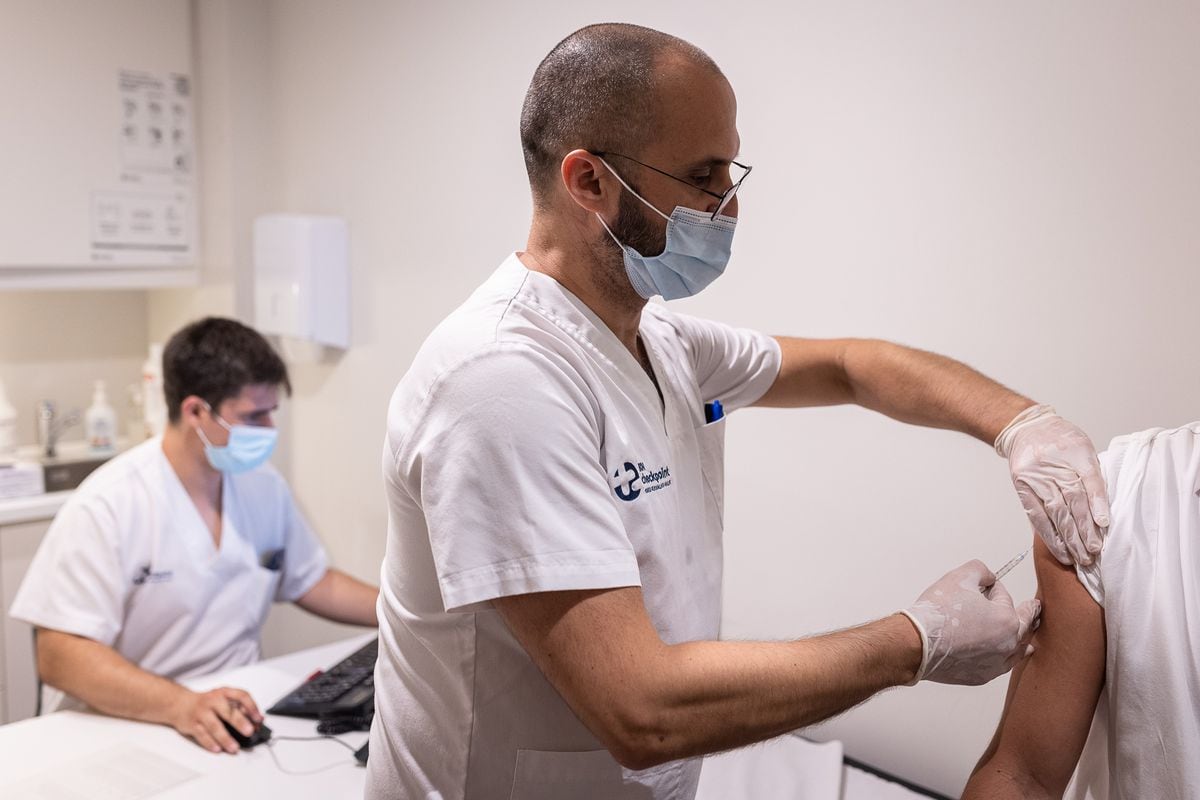Enlarge image
African specialists investigating possible cases of monkeypox in Congo in 2017
Photo: Melina Mara/The Washington Post/Getty Images
The spread of monkeypox has been causing uncertainty around the world for weeks.
98 percent of cases outside of Africa are reported in men who have sex with other men, and the virus has now reached 78 countries worldwide.
In Africa itself, however, experts are now pointing out that the disease spreads very differently than elsewhere.
More than a third of the diseases in Africa affect women
40 percent of cases currently affect women, said epidemiologist Dr.
Otim Patrick Ramadan at a press conference at the WHO Regional Office in Africa on Thursday.
More than 80 percent of African cases have occurred in countries where transmission had previously occurred.
In Africa, the disease is deadlier than in Western countries.
This year more than 2800 cases were counted in eleven countries, 103 ended fatally.
In the past week alone, there were 766 new cases, and the number of deaths rose by 28. Outside of Africa, however, only a handful of people have died so far, and more than 25,000 cases have been registered worldwide.
The transmission routes also appear to be different.
Cases of monkeypox have been reported in African countries for years, but so far have been limited.
Ahmed Ogwell Ouma, deputy director of the Africa Centers for Disease Control and Prevention (CDC), said at a separate press conference that there was no evidence that male-gay transmission was a significant factor in outbreaks in Africa.
"We've been collecting data on monkeypox since the 1970s, and this particular indicator, men having sex with men, has never been an important issue here," he said.
The fact that women are also much more likely to get sick could be explained by society, says Ouma.
As a rule, they are the ones who look after sick relatives at home – and thus expose themselves to the virus.
Monkeypox spreads through close contact and particles on shared bed covers, towels, or other everyday items.
The virus usually causes flu-like symptoms and purulent skin lesions.
So far no vaccine for Africa
Unlike in Europe, however, the supply of vaccines against the virus is running again.
According to the CDC, monkeypox vaccines have not yet been shipped to Africa, although discussions are ongoing with a number of countries and institutions to obtain them.
Urgently needed test kits have also been in short supply so far.
Experts suggest that outbreaks of the virus in North America and Europe may have originated in Africa long before the disease was spread through sex at two raves in Spain and Belgium.
The high number of cases increases the risk that the virus will spread and mutate even faster.
At the end of June, WHO chief Tedros Adhanom Ghebreyesus warned: “I am concerned about continued transmission because that would mean that the virus would become established and could also affect high-risk groups such as children, immunocompromised people and pregnant women.”
On July 23, the World Health Organization (WHO) declared the global outbreak an international health emergency.
In the meantime, monkeypox is on the rise, especially in Europe.
In Africa, on the other hand, the known number of cases has so far been significantly lower - and could possibly be further reduced with comparatively manageable means.
This contribution is part of the Global Society project
Expand areaWhat is the Global Society project?
Under the title »Global Society«, reporters from
Asia, Africa, Latin America and Europe
report on injustices in a globalized world, socio-political challenges and sustainable development.
The reports, analyses, photo series, videos and podcasts appear in a separate section in SPIEGEL's international department.
The project is long-term and is supported by the Bill & Melinda Gates Foundation (BMGF).
A detailed FAQ with questions and answers about the project can be found here.
AreaWhat does the funding look like in concrete terms?open
The Bill & Melinda Gates Foundation (BMGF) has been supporting the project since 2019 for an initial three years with a total of around 2.3 million euros - around 760,000 euros per year.
In 2021, the project was extended by almost three and a half years until spring 2025 under the same conditions.
AreaIs the journalistic content independent of the foundation?open
Yes.
The editorial content is created without the influence of the Gates Foundation.
AreaDo other media also have similar projects?open
Yes.
With the support of the Gates Foundation, major European media outlets such as The Guardian and El País have set up similar sections on their news sites with Global Development and Planeta Futuro respectively.
Did SPIEGEL already have similar projects? open
In recent years, SPIEGEL has already implemented two projects with the European Journalism Center (EJC) and the support of the Bill & Melinda Gates Foundation: the "OverMorgen Expedition" on global sustainability goals and the journalistic refugee project "The New Arrivals ", within the framework of which several award-winning multimedia reports on the topics of migration and flight have been created.
Expand areaWhere can I find all publications on the Global Society?
The pieces can be found at SPIEGEL on the Global Society topic page.
jpe/Reuters





/cloudfront-eu-central-1.images.arcpublishing.com/prisa/Q6UJ4IEP6ZGLZLS3MSHF7LNYOU.jpg)

/cloudfront-eu-central-1.images.arcpublishing.com/prisa/RDU33EMH6NBSHNKREMLJH4TGFQ.jpg)

